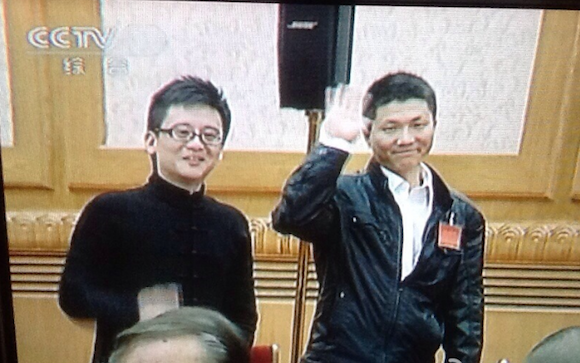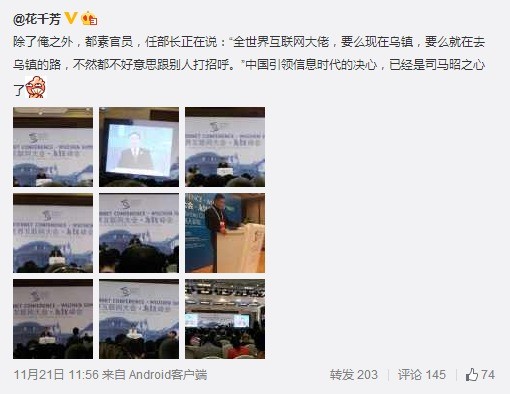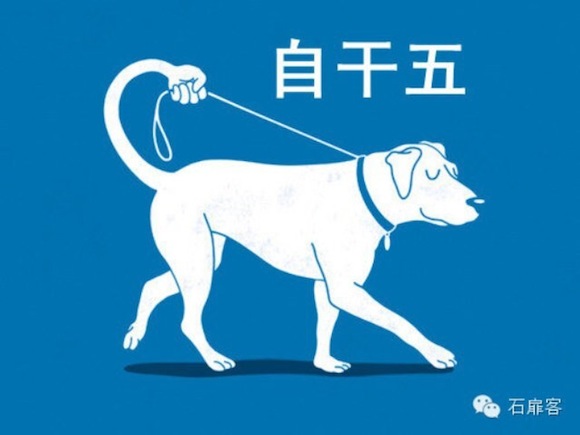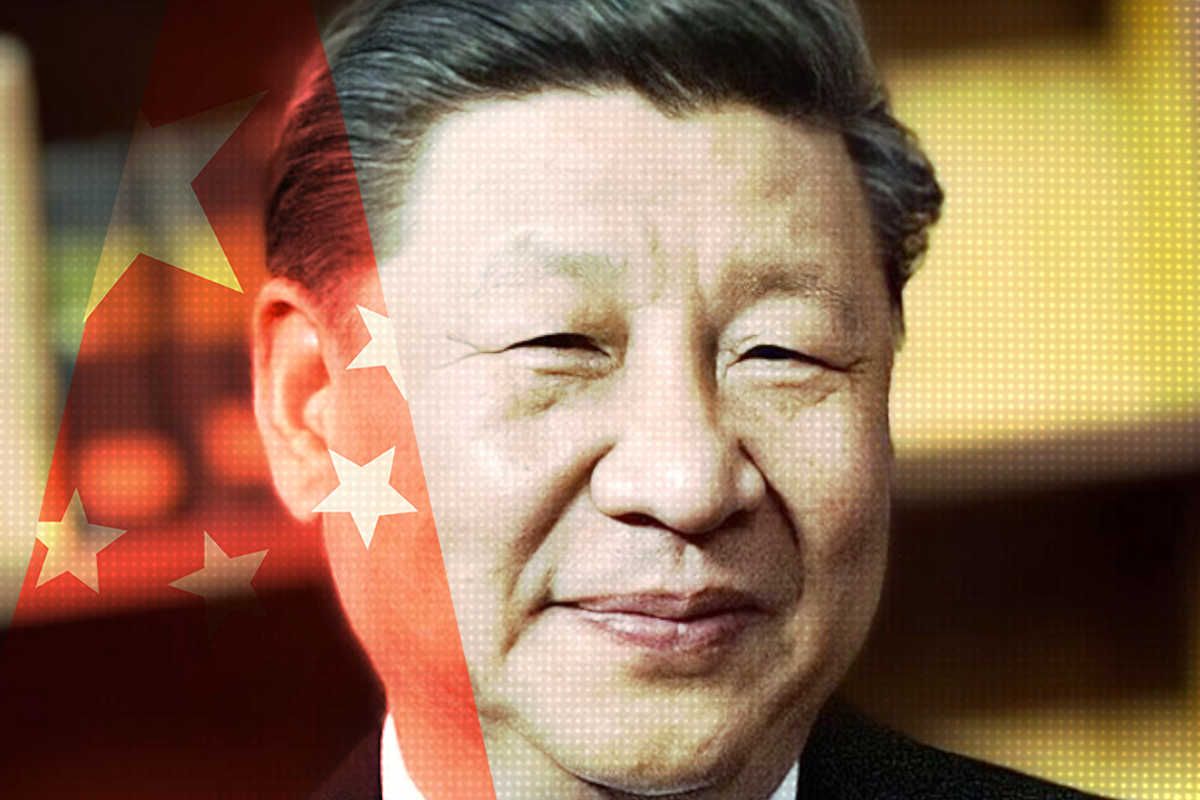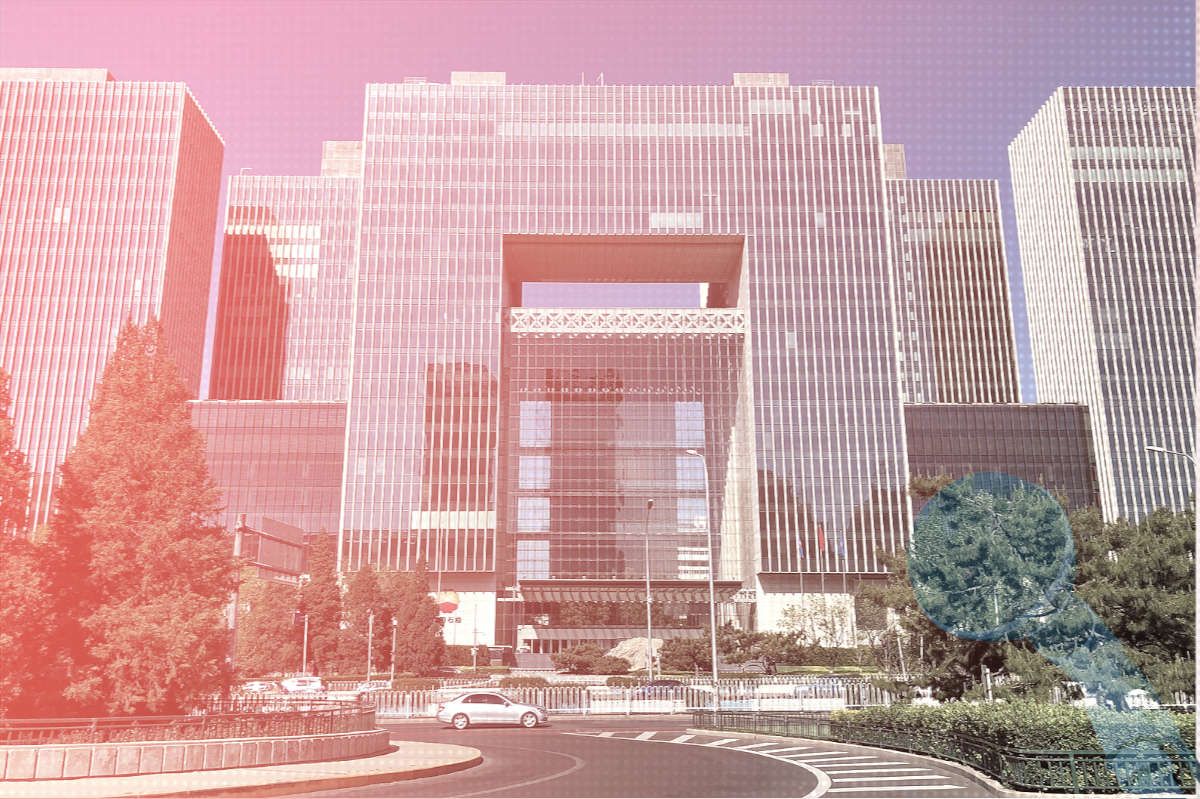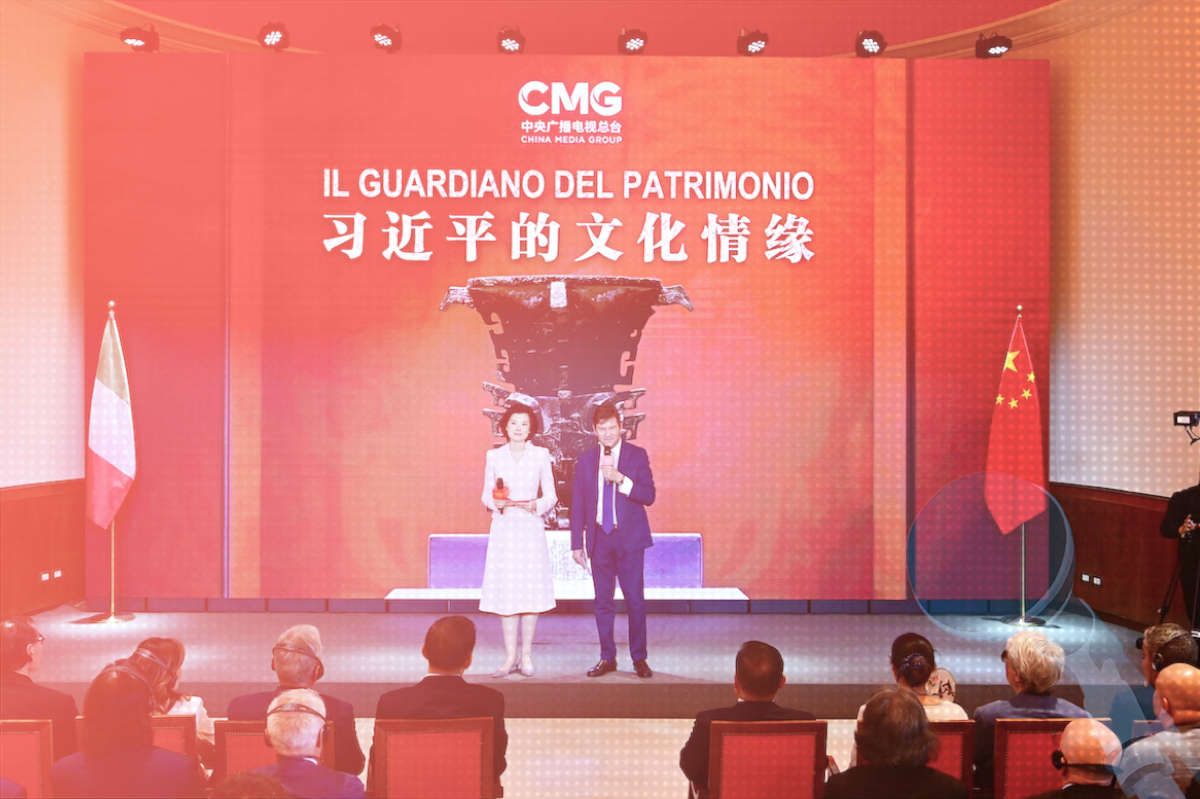The profile and interview in the November 22 edition of Portrait is called, “Hua Qianfang: America has Taken Our Respect, Piety, Virtue and Righteousness and Translated It As Universal Values” (花千芳:美国把我们的忠孝仁义翻译做了普世价值). That headline derives — mischievously, I think — from Hua’s absurd suggestion that Westerners just took traditional Chinese values and ripped them off by calling them “universal values.”
A translation of the Hua Qianfang interview follows. We also recommend that readers interested in the whole “positive energy” propaganda craze and the Bring-Your-Own-Grain pro-government commentators turn to this piece by former CMP fellow Yang Hengjun, written as a tongue-in-cheek defense of Hua’s compatriot, “Sunshine Boy” Zhou Xiaoping.
P:That day when Xi Jinping entered the hall, and later when he mentioned a number of you by name and shook hands with you — how did you feel right then?
H:What I felt right then, let me tell you, was happiness (幸福).
P:What did you say to him?
H:Hello Great Uncle Xi! I said that twice. Once when he said our names, and again when he shook my hand.
P:Everyone knows you for your essay, “Ours Is A Journey Through a Sea of Stars.” (我们的征途是星辰大海). This saying is from a Japanese writer, did you realize that?
H:You mean Haruki Murakami?
P:No, not Haruki Murakami. A writer called Yoshiki Tanaka, from a fantasy novel called Legend of the Galactic Heroes.
H:I’ve heard of the book, but I haven’t read it. Let me tell you, I get all of my information off the internet. I mean I haven’t read many books. I mean history books, politics books, science books, popular science — I’ve basically not read them. I get all of my knowledge from online posts.
P:So you browse the chat threads and look at what other people are saying?
H:Yeah. I see what other people are saying and then write down the really good parts. I don’t write it down, of course, but copy and paste you know. There’s a problem in doing that, which is that if people say it right I write it right, but if people say it wrong I might write it wrong.
P:How do you separate different viewpoints? Do you have your own standard of judgement?
H:I don’t have a standard of judgement. If someone says something reasonable I listen. This is the simplest point of view. Black is black, and white is white. It’s that simple. I’ll tell you, if I want to who’s right and who’s bad, the simpler the viewpoint the better. The prettier something is the more likely it is to be false.
P:Could you explain that?
H:For example, the notions of respect, piety, virtue and righteousness (忠孝仁义). China’s traditional value system. I can’t necessarily achieve this, but I think the sense in saying this is that we should respect the nation and act with goodwill toward our friends. I think these are things we should do, as a basic belief in being people. In America they translate this as “universal values.”
P:Have you had posts deleted or been prevented from posting before?
H:Well, everything I write are positive energy articles (正能量的文章), all propagating patriotism and calling on people to love life. I don’t know why there’s any cause to remove them. Generally, when I make a Weibo post there are at least 5,000 views, but sometimes I’ll post something and check back an hour later and find there are just a few views. Once I wrote a piece called, “I Support the Party Commanding the Guns” (我赞同党指挥枪), and that one was removed. I’m not sure why. [EDITOR’S NOTE: Hua’s ignorance of his nation’s political culture is astonishing, even for a layman. One of the most sensitive taboos in China is discussion of privatisation of the armed forces. Even voicing support for the Party’s control of the military assumes there is a debate at all, and so would tend not to be welcome — particularly on social media where comment threads would quickly grow sensitive.]
P:What about there being no blocking or deletion, and everyone can converse freely. Do you think that’s a possibility?
H:I don’t think that’s possible, because in America it’s not even possible.
P:So you believe there’s such a thing as [pro-American] paid web commentators (五美分) .
H:I think there must be, but I don’t have evidence.
P:What about 50-centers (五毛), [or pro-government paid web commentators in China]?
H:There definitely isn’t such a thing. There’s no need. Anyway, they have propaganda workers, and they can post on their own and that’s enough. Why would there be any need to hire others? If they need to pay people [to make positive comments online], then what are those propaganda workers for?
P:How do you understand the words [of Xi Jinping], “Ultimately, writers will guide this age”?
H:There are some who are pretty successful right now, like the ones writing fantasy novels, or online novels. They’re already quite successful. So far, positive energy writings, patriotic writings, haven’t yet found their path [to success].
P:So people look at positive energy stuff, but even more people read stuff criticising the government?
H:It’s no big deal. We can each do our own thing. There’s no tension here.
P:Well then, shouldn’t you head to where there are more people [interested]? I’m mean, seeing as you just said you write whatever it is people want to read.
H:Too many people go looking for problems, and not enough people go this route (patriotism, ‘positive energy’). Our readers should be the bigger group.
P:How do you arrange your time these days?
H:During planting season I’m busy in the fields. Then when I rest I write essays. That’s it. When there’s work in the fields you have to heed the call.
P:Have you ever thought about not writing, but making a living writing books?
H:I’ve wanted to be a writer since I was 13. If the opportunity comes up of course that would be better. But still, I don’t really think I can give it up. I think growing crops is a lofty and honourable thing. Just think, a piece of land, and nothing’s there, and you grow corn and in this way provide for people’s survival. How mysterious is that!
P:Your family’s corn crop, once it’s ready . . .
H:We have 50 mu. Enough for you to eat. Enough for you to eat (laughs).
